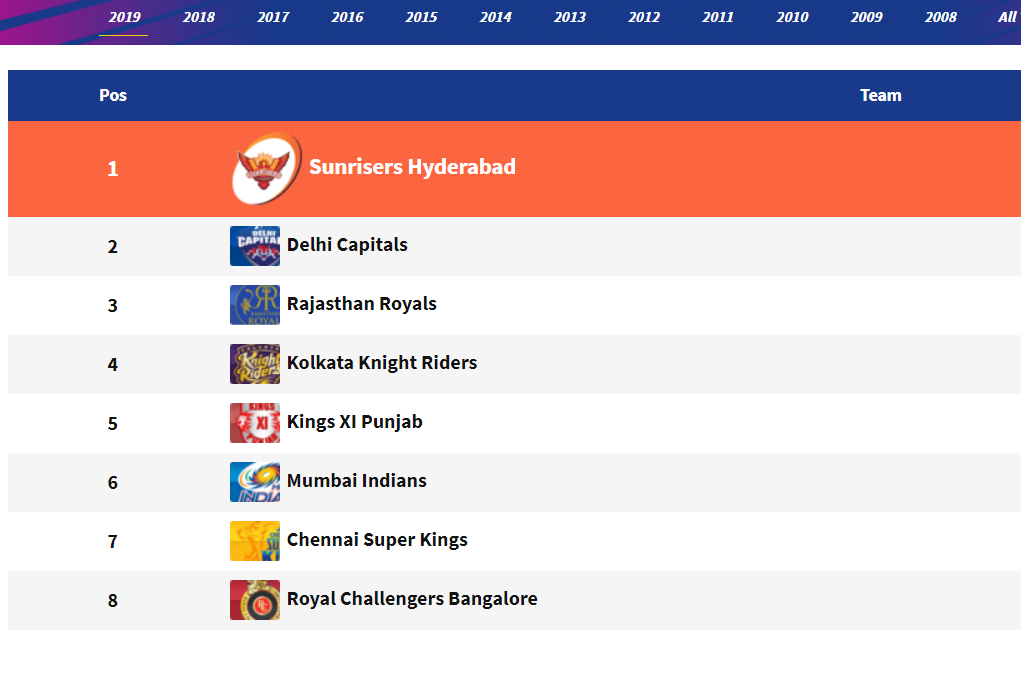In IPL fair play award seem to resemble points table except few outliers. Does fair play award has to do anything with who won the match also?
1 Answer
No, this is obviously not the case.
Of the 58 final points table positions after pool play in the IPL seasons 2012-2018, only twelve (12) matched the fair play rank for that team, and only three of these were the award winners.
If final points table positions and fair play award ranks are plotted with a linear regression model, there is almost zero dependence on the points table position (moving one place up or down has an effect of moving about ~0.11 places in the fair play ranking), with the starting position being almost exactly the mean final points table position (the fair play ranks are almost uniformly random rather than being biased to one side), and the data has a correlation coefficient of just 0.0131 (the points table position has as close to zero effect as it probably could!).
If the distance between fair play rank and final points table position is checked instead, the mean absolute difference is 2.48 ranks with an approximately Poisson distribution (a vast majority of ranks are not the same as positions, with many being very different). The actual differences have approximately a normal distribution with a standard deviation of 2.02 (which, given the range of ~7.3, again suggests that fair play ranks are almost perfectly random and separated from table positions).
This should also make perfect sense, since most teams will most often receive most of the fair play points they are eligible for, barring unlikely and extreme events, and teams may show high sportsmanship despite losing or conversely demonstrate poor spirit despite playing very well.
